- Home
- neetha Napew
The Savage Horde Page 5
The Savage Horde Read online
Page 5
as we go—can't afford to leave any pieces behind."
"I'll get someone on that," Milton murmured.
47
Rourke closed his eyes for an instant—he thought of the eyes beneath the closed
lids beyond the surgical tent. "Natalia," he whispered.
48
Chapter 12
Paul Rubenstein had given up on the medicinal liquor—he had no desire to get
drunk. And the coffee—good by anyone's standard—had proved too much for him as
well—two trips to what he'd rapidly learned was called "the head". He had given
up smoking many years before—so he sat now, staring at the wall, wondering. And
he knew it wasn't a wall—he remembered editing an article years ago that had
dealt with ships and boats and a wall was a bulkhead—he thought.
He wondered if Rourke knew—knew that the ship was underway. He realized that
even if Rourke had not been told, he would have suspected as much. And he
wondered even more about the welfare of Natalia.
He found himself smiling at mention of her name—that a major in the KGB would
have found such a warm place in his heart amazed him still. His parents, not
directly involved in the Holocaust, had told him of relatives who had been. The
SS, the Gestapo—and he rationally realized that the KGB was essentially the
same. But the woman—she was different.
If he felt such torture waiting for the outcome of the operation—six hours had
passed since it had begun—he could not even imagine what it was Rourke himself
felt. A slip of the knife, a misjudgment and a woman that Rourke obviously loved
would be dead. Rubenstein shivered—not with cold.
49
He sat bolt upright. "The operation's over."
He turned around—it was RourKe. "John—is—"
She was dead, Rubenstein thought—otherwise—
"She should make it," Rourke nodded, his face haggard-looking, leaner seeming
than Paul had ever seen it. Under the most bizarre conditions, Rubenstein had
secretly marveled that Rourke always found the time to stay clean shaven when
there was sufficient water available to do so. But now, his face was stubbled,
deep lines etched there heightened by the shadow of beard.
"You look like hell," Paul said quietly.
' 'Matches the way I feel—the last bullet. Nine fragments, some of them almost
as small as the head of a pin. Had to reconstruct it under a microscope. Made me
realize the last time I performed major surgery was a long time ago. The hands
are just as steady, but the reflexes I'd learned weren't there."
"We're underway—like they call it. You know that," the younger man told him.
"I felt it—yeah."
"What are we going to do, John?"
"If I got everything and did everything right, Natalia could be up and around in
about a week. We can't do anything until then. You meet the captain?"
"Commander Gundersen—yeah—seems okay."
"It's Cole we've gotta worry about—those orders of his—something doesn't sound
right about them."
"He wants to start a nuclear war all over again? That's crazy."
"I'm going to see if there's some way this Commander Gundersen can contact
President Chambers or Reed. But in the meantime, we're stuck."
"Gundersen's men took my guns—I didn't see any way of arguing it—six of them and
no running room."
Rourke nodded soberly. "I took off my pistols when I scrubbed—most of them
anyway," and Rourke smiled.
50
' 'But you were right—trying a shootout in a metal skin in the water—under it
now—would have been stupid."
"You're not gong through with this—to find the missiles. Are you?"
"I don't have much choice. We'll be there anyway when this thing surfaces—and if
I can contact Chambers and he confirms that Cole is acting in his behalf, then
I'll have to. And if I can't contact Chambers—my gut still tells me there's
something wrong. Something really wrong with Cole and his outfit. And if Cole is
some kind of crazy—or maybe a Russian Natalia wouldn't have known about—or
something else—we can't let him get his hands on those six missiles. He was
talking about them—eighty megaton capacity for each missile. Nearly five hundred
megatons combined."
"What started it between Cole and Natalia?" Rubenstein asked.
Rourke sat down, holding his head in his hands for a moment, then looked up. He
picked up the bottle of medicinal liquor—"Looks like it tastes great."
"You get used to it," and Rubenstein felt himself smile.
"Yeah—well—after Natalia's suction has been working for a while—"
"Her what?"
"Got a Levin tube suctioning her until peristalsis resumes—but there's always a
chance the suture line I made wasn't complete enough and I might have to open
her up again—I should know in about six hours or so—gonna try and sleep."
"I could feel for you, John—doing that—holding her life in your hands."
"A lot of things I've been thinking about lately," and Rourke smiled. "I always
get the impression you look to me as the problem solver—don't you?"
Embarassed slightly, Rubenstein only nodded.
"Well—if I'm so smart, how the hell come I'm in love
51
with my wife and I'm in love with Natalia at the same time, huh?"
Rourke said nothing else, reaching into his shirt pocket and taking one of the
dark tobacco cigars and lighting it, his face more lined and tired than before.
52
Chapter 13
Sarah Rourke opened her eyes, her eyes, her face warm in the shafts of brilliant
sunlight coming through the screened open window, the curtains blowing softly in
the warm breeze. She sat up in bed, rubbing her eyes once, then stretching,
feeling too warm in the nightgown.
"Spring," she smiled. She had inured herself to the insanity of the seasons
since the Night of The War. Today it would be spring—tomorrow it might be winter
again. "Tomorrow—" She laughed as she said the word.
She pushed down the sheet and the quilt and swung her legs over the side of the
bed, standing up, barefoot, the nightgown's hem hiding her feet. She walked to
the window. There was quiet—the dog not running madly with the children yet. She
would shower later, she told herself.
She stepped away from the window, standing near the dresser, conscious of
herself as she pulled the nightgown over her head and put it on the bed. She
looked at herself—her breasts weren't exactly little anymore. Nursing two
children had seen to that. But there was, as best she could tell, barely an
ounce of fat on her body—the constant running, fighting—all of it since the
Night of The War had seen to that.
She wondered absently—taking a bra from the dresser drawer and starting to put
it on—if time in the future would be reckoned from the Night of The War—like it
53
had been since the birth of Christ?
The irony was not lost on her.
Peace versus war.
She stepped into her panties, dismissed the idea of wearing a slip and pulled
the yellow dress from the hook inside the wardrobe cabinet doors and took it
from the hanger. She puHed the dress on over her head, starting to but
ton the
back of the dress mechanically, without watching, as she stared out the window.
It would be a beautiful day—perhaps so beautiful that Mary Mulliner's son would
come back and bring word of contacting John—that he was well, that he was coming
for her and for the children.
She began to brush her hair, her hair longer than she had kept it in
years—somehow she was unwilling to cut it. She set down the brush, opened the
top drawer of the dresser and began to search for a pony tail holder to keep her
hair back from her face. The old blue T-shirt she had worn—it was washed, folded
neatly—She looked under it. The terminally rusted .45 her husband had left for
her, that she had carried next to her abdomen since the Night of The War.
She picked it up, her reflexes automatic now as she pushed the magazine release
catch button, dropping the magazine on the bed clothes, then with her stronger
right hand, the gun held in her left, drew back the Government Model's slide.
The Colt's chamber was empty. She knew it would be—but had learned never to
trust to that.
She pointed the emptied gun at a safe space of exterior wall and snapped the
trigger, the hammer falling with a loud "click", an infinitesimal amount of oil
felt sprayed on the web of her hand as the hammer fell.
"My God." She simply shook her head, looking at the pistol; the sunlight and the
yellow dress she wore somehow no longer the same to her.
54
Chapter 14
Rourke saw them—Michael and Annie. They were running—but running happily. There
was a beach—they were running along it in the surf, barefooted, their pants legs
rolled up but stilt hopelessly wet as the foaming water lapped against their
shins, the children only half-heartedly running.
He looked at himself—the weight distribution o*f his shoulder rig felt odd to
him and he lifted his shoulders under it, searching the beach—Sarah had to be
there too.
He wanted to shout to Michael and Annie—but even more than holding them he
wanted to watch them run—to play. Hear them laugh. Annie had grown—but somehow
she hadn't changed at all. The wild-eyed little kid—the happy girl, the girl who
made you laugh. He laughed at himself.
Sarah—he still couldn't see her.
He watched Michael—his face was more serious than it had been—tanned more deeply
than it always seemed to be, even in the dead of winter. He was somehow taller
and straighter than he'd been just before the Night of The War, and even
disguised under the T-shirt Michael wore, he could see the boy's musculature—how
it had changed, matured.
Rourke stopped, seeing someone lying further along the beach. He brought the
Bushnell 8x30s out and focused them. The figure was a woman, wearing a bathing
55
suit—she lay sunning herself, pale seeming under the bright sun on the sand.
* 'Sarah,'' he whispered. He started to run, the binoculars bouncing against his
chest as they swung from their strap. "Sarah!" The children would hear him he
knew.
The sand was hard to run in, slowing him. "Sarah!"
He was there suddenly, beside her. She didn't turn around.
"Sarah—I tried to make it back sooner—you'll never know how I tried. There were
so many battles to fight—and—"
She didn't answer. She didn't move. He dropped to his knees in the sand. The
body was so familiar to him—the patterns of the tiny freckles on her shoulders,
the way she pushed her hair from the nape of her neck when she lay in the sun.
The flesh was cold as he touched it.
"Sarah—" He drew his hand back, then touched gently against her back. Still
cold—clammy to the touch.
Swallowing hard, feeling his muscles bunching tight, he bent closer to her and
felt at the neck for a pulse. There was none.
"Oh, Jesus," he rasped.
He took his hands away for a moment, then placed them both on the shoulders,
turning the body.
Michael and Annie were standing beside him.
"Why didn't you come," Michael asked, his voice serious sounding, hurt
sounding—like Rourke had heard it when he had been too busy to play, too busy to
talk. "Why didn't you come, Daddy?"
Rourke couldn't answer—he knew they wouldn't understand.
"Your mother,11 he whispered, then looked back at the face as he finished
rolling over the body.
Dead.
56
Lids open—the eyes a brilliant blue.
"Natalia." He heard himself whisper it.
Annie said. "That's why Daddy didn't come, Michael."
He turned to look at the children, to say, "No—that's not right—" But they were
running off toward the surf again, laughing.
But the laughter somehow sounded forced to him, hollow.
It was Sarah's body as he drew it into his arms, but somehow Natalia's face and
he asked himself if he were insane.
"What—"
"John!"
"Michael—please understand—"
"John!"
"Damnit!" Rourke opened is eyes, light in a yellow shaft coming through from the
companionway. The face over him, shaking him—Paul.
"John—you all right—you were—"
"What's the matter?"
"That's why I came, John—it's Doctor Milton—he says Natalia's dying."
Rourke sat up.
"Michael," he murmured. Then he pushed himself from the cot and started into the
companionway, Rubenstein beside him.
57
Chapter 15
"I won't let you die." He told her that even though she couldn't hear him.
"Doctor Rourke—"
"I'm opening her again. Maybe I counted wrong and there was another fragment
that didn't show up—"
"But she's bleeding to death."
"I'm opening her."
"Later maybe—you could—"
"If I don't—you want me to run down the list of what could happen and what would
happen first—"
"Let me—you look exhausted."
"No—no," and Rourke felt himself shaking his head. "No." He looked at his hands,
then touched them to her face . . .
"We're going to have a couple members of the crew down for the count—I've had
men volunteer to give a second pint of blood—I'm taking half pints only."
"Give me their names when this is through," Rourke told Milton. "If she makes it
she'll want to thank them." It wasn't the suture line—it was gastric bleeding
and as Rourke completed re-opening her he could see nothing. "I need suction
here—fast—there's so much fluid I can't—"
"Coming up." It was Kelly and Rourke nodded, starting to apply the suction. At
the rate at which she was bleeding—he didn't finish the thought . . .
"Here—" and Rourke glanced at the clock—it had
58
been more than eighty minutes. "You—you close her," and Rourke stepped back,
blood half way up his forearms, staining his gown, his gloved hands splotched
with it—her blood. He stripped away the gloves.
"Here, Doctor—" It was Kelly.
"No—no—you stick with Doctor Milton—I'm all right." Rourke couldn't leave the
room—he was too tired, his head aching too badly. On the white clothed tray was
the bullet. He picked it up—there had been eight rounds, this one buried in the
abdominal wall—a place he'd searched and missed before. Upon removing the
bullet, he controlled the bleeding with another continuous locked chromic
suture. "Tired," he murmured.
He started to strip away the gown and when it was half off, dropped the bullet
in the pocket of his pants—it would remind him of two things, always—mortality
and fallability. And a third thing—to persevere.
59
Chapter 16
Sarah, her hands stabbed into the squared pockets of her dress, walked. She felt
the high grass against her bare legs, felt the sun warm her chest and back. She
was changing—she knew that, had realized it from the first time she'd picked up

 Zero City
Zero City Freedom Omnibus
Freedom Omnibus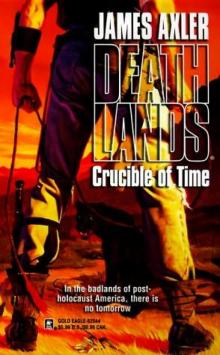 ACrucible of Time
ACrucible of Time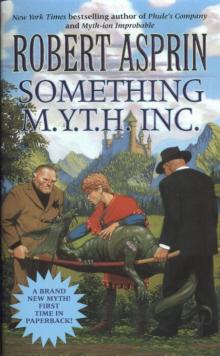 Something MYTH Inc
Something MYTH Inc Forbidden Land
Forbidden Land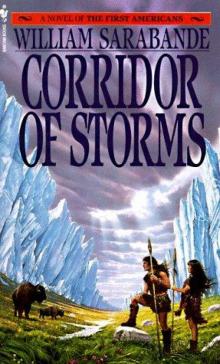 Corridor of Storms
Corridor of Storms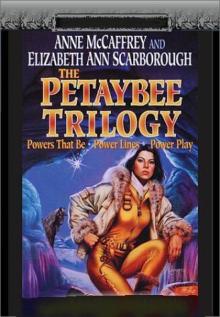 The Peytabee Omnibus
The Peytabee Omnibus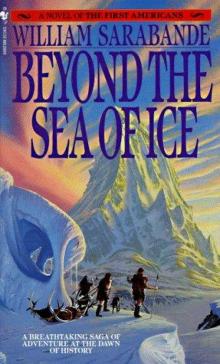 Beyond the Sea of Ice
Beyond the Sea of Ice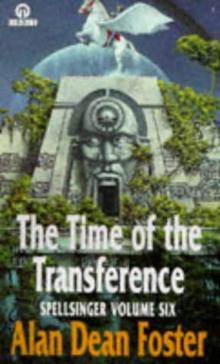 The Time Of The Transferance
The Time Of The Transferance EarthBlood
EarthBlood The Lexal Affair
The Lexal Affair The Web
The Web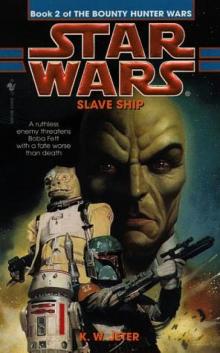 Slave Ship
Slave Ship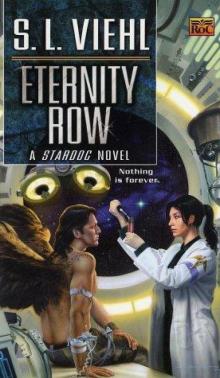 Eternity Row
Eternity Row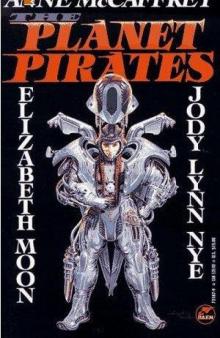 Planet Pirates Omnibus
Planet Pirates Omnibus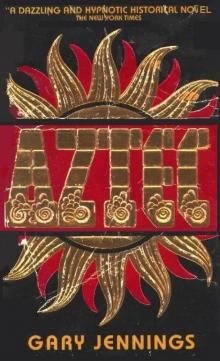 Aztec
Aztec The Awakening
The Awakening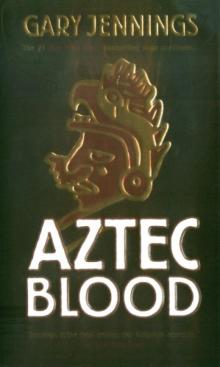 Aztec Blood
Aztec Blood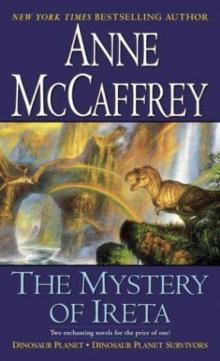 The Mystery of Ireta Omnibus
The Mystery of Ireta Omnibus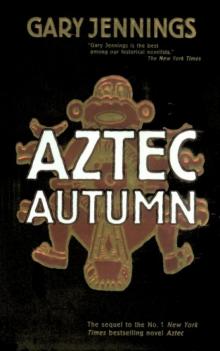 Aztec Autumn
Aztec Autumn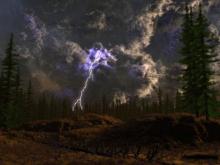 The Savage Horde
The Savage Horde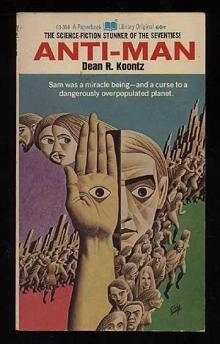 Anti - Man
Anti - Man Deep Trek
Deep Trek Starfall
Starfall The Paths Of The Perambulator
The Paths Of The Perambulator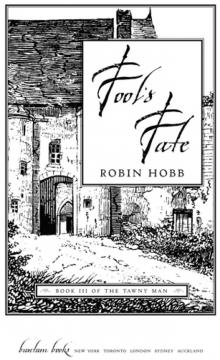 Fool's Fate
Fool's Fate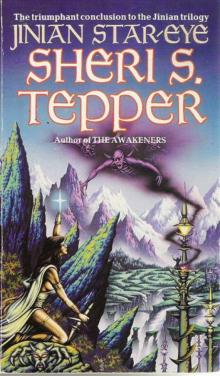 Jinian Stareye
Jinian Stareye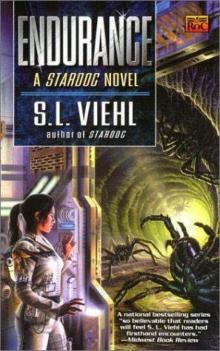 Endurance
Endurance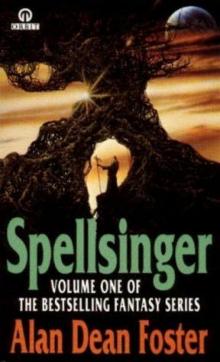 Spellsinger
Spellsinger Hybrids
Hybrids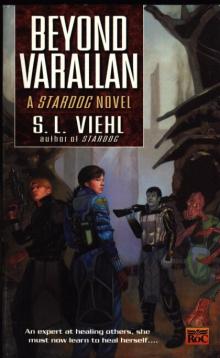 Beyond Varallan
Beyond Varallan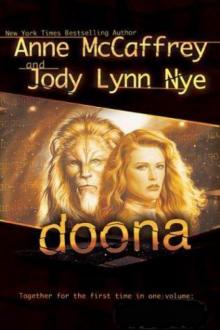 Doona Trilogy Omnibus
Doona Trilogy Omnibus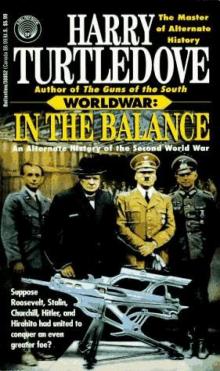 In th Balance
In th Balance Planerbound
Planerbound The Nightmare begins
The Nightmare begins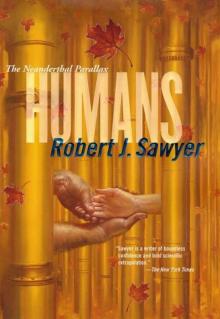 Humans
Humans Son Of Spellsinger
Son Of Spellsinger